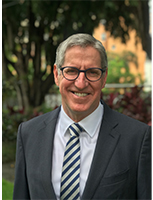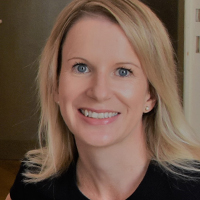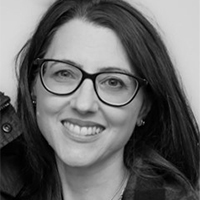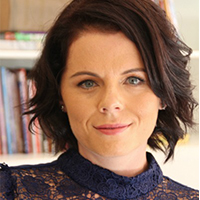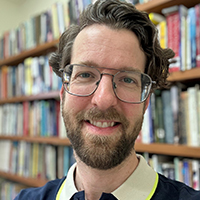Mental Health Week is a national week celebrated around Australia annually. Starting with 'World Mental Health Day' on October 10, the week aims to raise awareness about mental health and well-being, reduce stigma surrounding mental illness, and encourage people to seek help when needed.
This Aquero lecture on the topic of strengthening wellbeing in the helping professions, was chaired by ACU's Professor Kim Foster, a mental health nurse and the Eileen O'Connor Chair of Mental Health Research at ACU. She is internationally recognized for her leadership in mental health and psychosocial research, with a particular focus on workforce wellbeing and resilience.
Helping professions such as nursing and teaching are built on compassion, care, and commitment to others - but this work can also come with significant mental, emotional, and physical demands. As the pressures on these professions continue to grow, so too does the need to understand how we can better support the wellbeing of staff who dedicate themselves to supporting others.
The panel of experts from nursing and education identify the challenges faced by professionals in these fields - from burnout and moral distress to systemic pressures and emotional fatigue. More importantly, they discussed practical, evidence-informed strategies that organisations and individuals can use to promote mental wellbeing, foster resilience, and create healthier, more sustainable work environments for staff.
We hope this lecture sparks meaningful dialogue, reflection, and take-way strategies that support action in building cultures of care - not just for those we serve, but for those who serve.
The panel was comprised of:
- Kim Foster, Professor, School of Nursing Midwifery and Paramedicine, and Eileen O'Connor Chair of Mental Health Research at ACU
- Anna Love, Chief Mental Health Nurse and Executive Director Clinical and Professional Leadership Unit, SaferCare Victoria
- Theresa Dicke, Professor, Institute for Positive Psychology and Education (IPPE), ACU
- Nathan Smith, Manager, Wellbeing, Catholic Schools NSW
Presenters

Professor Kim Foster
School of Nursing, Midwifery & Paramedicine ACU
Kim is a mental health nurse and the Eileen O'Connor Chair of Mental Health Research at ACU. She is internationally recognized for her leadership in mental health and psychosocial research, with a particular focus on workforce wellbeing and resilience.
From 2016 to 2022, Kim held the position of Professor of Mental Health Nursing and Clinical Chair in a jointly funded Mental Health Nursing Research Unit between ACU and NorthWestern Mental Health, Melbourne Health. In this role, she led nurse-led and multidisciplinary research aimed at improving mental health services and consumer and carer outcomes.
Kim is widely published in peer-reviewed journals and has authored and edited several textbooks on mental health nursing. In 2011, she was awarded a prestigious Winston Churchill Fellowship to investigate international approaches to resilience-building interventions. Her research has been supported by national competitive grants, including an Australian Research Council-funded project evaluating the impact of a resilience-building program for mental health nurses. Kim's long-standing commitment to enhancing the wellbeing of the nursing workforce continues to shape policy and practice in health care.

Anna Love
Chief Mental Health Nurse and Executive Director Clinical and Professional Leadership Unit, Safer Care Victoria
Anna was appointed Victoria's Chief Mental Health Nurse in 2015 and comes with experience across mental health and addictions medicine, having trained and worked in the UK before moving to Australia. Anna's vision is to ensure we have a skilled, valued, and nurtured mental health nursing workforce. In 2022, Anna was additionally appointed as Executive Director of the Clinical and Professional Leadership Unit within Safer Care Victoria.
Anna is the executive sponsor of the Mental Health Improvement Program, leading significant reform and improvement projects in response to the Royal Commission into Victoria's Mental Health System. Anna provides expert advice on quality and safety matters to the CEO of Safer Care Victoria and the Department of Health. As Executive Director, Anna oversees and supports the work of Victoria's Chief Clinical Officers.

Professor Theresa Dicke
Program Lead for the Educational and Developmental Psychology Program at the Institute for Positive Psychology and Education (IPPE)
Theresa is an expert in performance and wellbeing of students, teachers, and school principals. She has published extensively in the area of (disadvantaged) student self-beliefs, and achievement and particularly contributed to research on (early career) teacher burnout. Her research is oriented largely around schools as systemic communities, where she links the perspectives of students, educators, school leaders.

Nathan Smith
Manager, Wellbeing; Catholic Schools NSW
Nathan has worked in the education sector for the past 15 years. He began his career as a School Counsellor in the independent sector before retraining as a Classroom Teacher. For the past decade, he has served in Catholic education, holding senior leadership roles including Director of Evangelisation and Catechesis, Director of Pastoral Care and Wellbeing, and Assistant Principal.
These roles allowed Nathan to work in an area he is deeply passionate about - child and adolescent mental health and wellbeing. He is driven by a belief in the power of education to enhance both learning outcomes and wellbeing, equipping young people with the skills and knowledge needed to thrive in an increasingly dynamic world.
Nathan now serves as Manager, Wellbeing at Catholic Schools NSW, where he leads a broad portfolio of strategic initiatives focused on student wellbeing, behaviour, and engagement across the Catholic education sector.

